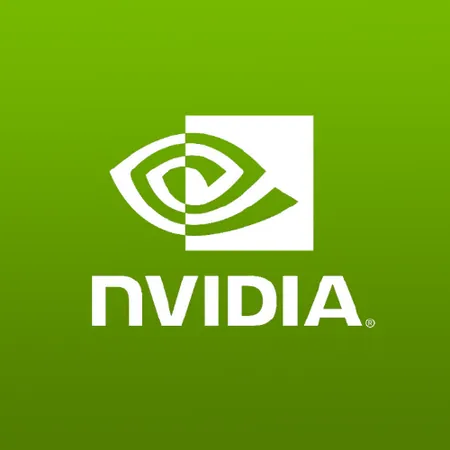
Nvidia's $15 Billion Earnings Drama: Will China Impact the Market?
2025-08-27
Author: Benjamin
Nvidia Gears Up for a High-Stakes Earnings Reveal
As Nvidia (NASDAQ:NVDA) approaches its critical earnings report this Wednesday, investors are on edge, anticipating dramatic twists. Wall Street's projections for the third-quarter revenue are alarmingly divided, with estimates swinging by nearly $15 billion—marking the most significant gap in a decade. This volatility reflects the growing uncertainty surrounding Nvidia’s performance in China.
Earlier this year, President Trump temporarily barred Nvidia from selling chips to China, only to reverse that decision recently under a new deal that allocates 15% of proceeds to the U.S. government. Yet now, reports suggest Beijing is advising local companies to steer clear of Nvidia's H20 processors, further clouding the outlook. With U.S. policy shifting and demand from China waning, investors are clamoring for clarity from Nvidia's leadership.
Analyst Opinions: Can Nvidia Survive Without China?
The division among analysts is notable when it comes to predicting Nvidia’s future earnings—especially regarding potential revenue from China. Christopher Rolland from Susquehanna has opted to factor out H20 chip sales in his forecasts, while UBS’s Timothy Arcuri believes including them could boost projections by as much as $3 billion.
Consensus estimates expect Nvidia to report approximately $46.2 billion in revenue and adjusted earnings per share (EPS) of $1.01 for the second quarter, representing nearly a 50% increase year-over-year. Predictions for the third quarter hover at about $53.5 billion in revenue and an EPS of $1.21. Options traders anticipate a 6% swing in either direction following the earnings release, a testament to Nvidia's significant influence on the market, bolstered by a market cap of $4.4 trillion and an 8.1% stake in the S&P 500 Index.
What's Next for Nvidia?
A key point of interest will be CEO Jensen Huang’s insights on the forthcoming B30 chip, which may soon take the place of the H20 in China. Demand for Nvidia’s Blackwell architecture remains robust globally, presenting opportunities for the company to exceed expectations even if they lean less on Chinese sales.
Meanwhile, Nvidia faces fierce competition from local rival Cambricon Technologies, which has recently reported record profits due to escalating domestic demand, fueled by Beijing's efforts to promote homegrown AI alternatives after the DeepSeek boom.
With Nvidia's stock just shy of record highs and surging 35% since its last earnings report in May, the results released this Wednesday could be pivotal in determining whether China remains a manageable hurdle—or becomes a game-changing challenge.









 Brasil (PT)
Brasil (PT)
 Canada (EN)
Canada (EN)
 Chile (ES)
Chile (ES)
 Česko (CS)
Česko (CS)
 대한민국 (KO)
대한민국 (KO)
 España (ES)
España (ES)
 France (FR)
France (FR)
 Hong Kong (EN)
Hong Kong (EN)
 Italia (IT)
Italia (IT)
 日本 (JA)
日本 (JA)
 Magyarország (HU)
Magyarország (HU)
 Norge (NO)
Norge (NO)
 Polska (PL)
Polska (PL)
 Schweiz (DE)
Schweiz (DE)
 Singapore (EN)
Singapore (EN)
 Sverige (SV)
Sverige (SV)
 Suomi (FI)
Suomi (FI)
 Türkiye (TR)
Türkiye (TR)
 الإمارات العربية المتحدة (AR)
الإمارات العربية المتحدة (AR)